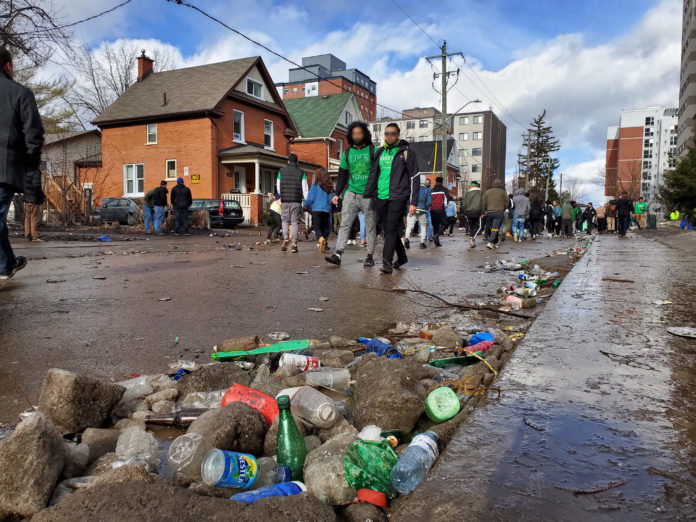The effects of climate change are expected to become catastrophic within the next two decades. The federal government is in full-gear to reduce Canada’s contributions to this global phenomena.
On Jun. 10, Prime Minister Justin Trudeau announced a ban on single-use plastics to commence as early as 2021.
This decision occurred after a report conducted in 2016 by the Environment and Climate Change Canada found that around 87 per cent of plastic waste found its way to landfills, instead of being dealt with appropriately.
Items included in the ban will be determined by a science-based review, but plastic bags, water bottles, and straws may be considered.
Jennifer Lynes, associate professor in Environment, is supportive of this plan. She recognizes that some municipalities have bans in place, but believes it is time to have a nation-wide ban.
“The speed with which consumers, businesses and government have embraced the reduction of items such as plastic straws over the past two years is astonishing…. We also have to make sure that the alternatives are ready to scale up to the changing landscape of the market,” she said.
Although this was a commendable first step, many were confused with the second approval of the Trans Mountain Pipeline a few days later. Trudeau’s rationale is that reducing the climate change crisis and investing in the economy are both goals that can be accomplished simultaneously.
Although this $7 billion investment could triple the amount of oil transferred from Alberta to British Columbia daily, its environmental costs could prove fatal.
According the B.C. government, “the consequences of a marine spill would not only be on the marine environment, but [the B.C.] economy as well.”
Even without a marine spill, the production of such a massive project would have detrimental effects on an environmental currently struggling to stay afloat.
Although the Trudeau government is convinced these are, “complementary” targets, one will always take priority.































